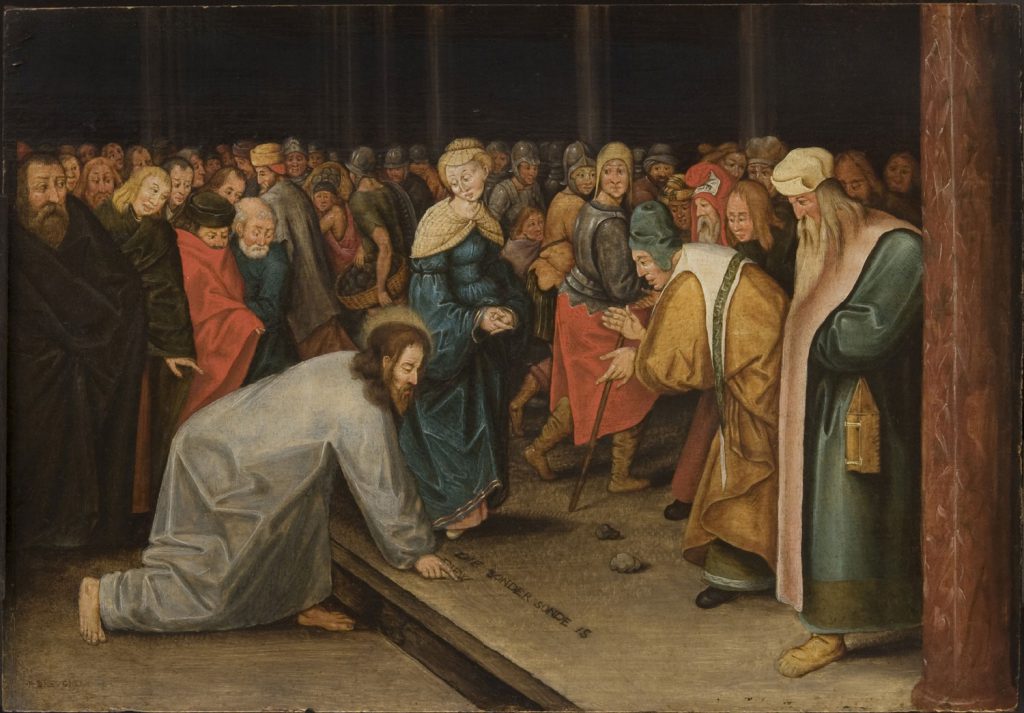
Published November 14, 2020
O God, in your mercy, deliver your people from another column about politics. After all, isn’t everyone exhausted? But alas, like other embarrassing social diseases, the political warts of the last four years linger.
On November 9, the Wall Street Journal published a photo of Joe Biden – front page, above the fold – walking to Mass on the day after a news agency declared him president-elect. It was a snapshot of leadership piety. Reassuring. Decent. Normal. And it was taken just hours after a victory speech in which our presumptive president-elect called for unity and healing, and an end to “this grim era of demonization.”
Never mind Mr. Biden’s eccentric view of what being “Catholic” means in matters of public policy. All of his words sounded good. . .except for the fact that a hefty share of the recent “era of demonization” came, and still flows, from Biden’s own party. Donald Trump may have teased and fed the nation’s spirit of conflict, but he didn’t create it. He inherited it from his predecessor.
And Trump’s exit won’t heal any of our deepest fractures. From the day he derailed Hilary Clinton’s coronation train in 2016 until today, Democratic Party leaders and supporters have waged a poisonous, slow-motion guerrilla war against all things Trump. This has included some astonishingly ugly attacks on his son Barron – a 14-year-old child who, unlike Hunter Biden, is not an alleged crook and influence peddler.
There’s a reason for the bitterness. The philosopher Eric Voegelin described progressivism as a form of Gnostic religion, a kind of debased Christianity. In practice, Christianity desacralized politics by focusing humanity’s goal on the City of God, beyond this world. Progressivism re-sacralizes politics by focusing ferociously on power, here and now, in the City of Man.
Today’s cultural left acts accordingly, with a zeal worthy of Torquemada: outraged in defeat and vengefully self-righteous in victory. Political opponents are at best ignorant and at worst, scheming heretics, enemies of the Light.
Michelle Obama’s post-election tweet that “tens of millions” of misguided people had voted for “the status quo, even when it meant supporting lies, hate, chaos, and division” had the oily odor of missionary condescension.
Meanwhile, her husband, writing from the heights of Olympus, granted that he was “not yet ready” to give up on America. All those 72 million troglodytes who voted for “chaos and division” should be grateful – and repent.
Projection, in the language of psychology, is the habit of attributing to others the feelings and sins we harbor in our own hearts. It involves a subtle species of lying; lies that we try to mask even from ourselves. It’s much more satisfying, for example, to claim that (fill in a name) is a fascist and his supporters are racist haters, than it is to face – honestly – how our own feelings involve bile and hate.
It’s no surprise that “Hate Has No Home Here” signs began spreading like a virus on lawns of the politically enlightened the same month Trump won the 2016 election. Over the past four years, such signs have mutated from mere moral preening to subtle forms of disdain and exclusion for the hopelessly unsaved.
For some homeowners, their lawns are precisely where hate has a home. The same projection strategy has been used with great success by the LGBTQ lobby to rebrand and blackball Christian beliefs about sexuality as a form of religious bigotry. It’s the smart move: If you’re a hater, the best defense is a good offense.
I’ve been re-reading two books this sorry election season. I value each of them, though for very different reasons. In One Nation, Two Cultures, written more than 20 years ago, the historian Gertrude Himmelfarb examined American society in the wake of the 1960s cultural revolution. While noting the fissures that separate traditional, biblically informed culture from the nation’s emerging forms of secular thought and permissive practice, Himmelfarb argued powerfully for the underlying strength of American unity.
She wrote that
America has a long tradition of tolerance that does not require, as is sometimes supposed, a diminution of conviction, but that is entirely consistent with the strongest convictions. It is this kind of tolerance that serves as a mediating force between the two cultures, assuaging tempers and subduing passions, while respecting the very real, very important differences between them.
I want to believe this, but I no longer do. Or rather, it becomes harder every year as the lies celebrated as virtues – gender theory, same-sex marriage, the “right” to kill an unborn child, physician-assisted suicide (the list gets annually longer) – pile up. At some point, the lies reshape who we are as a nation. We become an entire “People of the Lie”, poisoned by the kind of calculating evil, the cynical inversion of the good, that psychiatrist M. Scott Peck described in his groundbreaking 1983 book with that title. We’re nearly there as a nation, which raises the question: What do we do now?
I think Peck speaks both the truth and the answer when he writes
When one has purified oneself, by the grace of God, to the point at which one can truly love one’s enemies, a beautiful thing happens. It is as if the boundaries of the soul become so clean as to be transparent, and then a unique light shines forth from the individual. . . .[Those] who hate the light will attack it. Yet it is as if their evil actions are taken into the light and consumed. The malignant energy is thereby wasted, contained, and neutralized. . . .I do not know how this occurs. But I know that it does. [And] whenever this happens, there is a slight shift in the balance of power in the world.
This I do believe. And I – and we – now need to beg for the grace to live it.
Francis X. Maier is a senior fellow in Catholic studies at the Ethics and Public Policy Center, and senior research associate at the University of Notre Dame.









